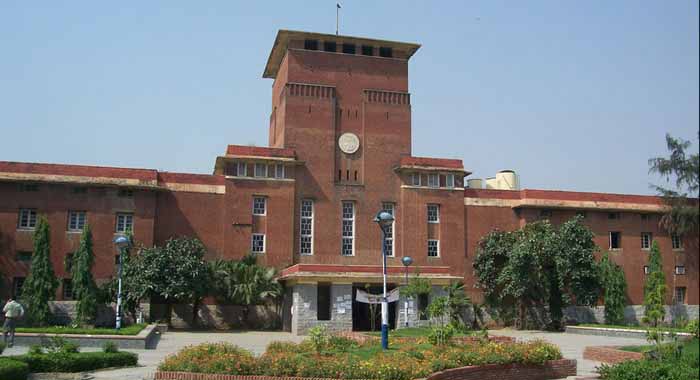Delhi University (DU) seems to be the dream of almost every kid, cramming up all possible books to fetch a seat, performing all sorts of rituals for the sake of one’s dream college. The competition goes on and on. But is the DU craze justified?
- North Campus Elitism
The ‘colony’ of colleges is a peculiar attribute of DU, thanks to Rang-De-Basanti, maybe that is why the north campus hype prances in its (hyped) glory? The overemphasis of the north campus, somewhere down the line, suggests the underlying elitism. While if one cares to hover their eyes over the map of Delhi, other colleges like Lady Shri Ram, Sri Venkateshwara College, Gargi College, etc. also exist. And do we even need to acquaint you with the ‘North Campus vs. South Campus’ tussle? You know the story from numerous YouTube videos. We get it North Campus, you have Virgin Tree in Hindu College and Kamla Nagar’s momos but that’s all there is.
- Study Culture
The infamous study culture of DU is not a secret. Many condemn that DU has only been successful in imparting degrees, but has failed when it comes to imparting knowledge. “A student from Calcutta University will take tuitions, will study for umpteen number of hours, while a DU student will pick up their books a week before the examinations. And at the end of the day, score more than us.” says, a pass out from Calcutta University who wished to be anonymous. The prominent DU degree is just a facade, while colleges like NLU and IITs provide high placements to their toppers, DU provides just boasting rights as placements at DU does not exist, well except for SRCC.
- Infrastructure
Panting fans, ceilings which give a ‘near-to-death’ experience (we’re pointing at you Daulat Ram College), roads which remain under construction even after you clear all your backs and a master’s degree, washrooms (we’ll leave it to your imagination), aren’t these a class apart? (Note the heavy sarcasm). The infrastructure of DU is a different story altogether, a story which is poles apart from the preconceived image of DU. A DU aspirant with ambition in eyes is often met with broken benches, more broken than their hopes.
- Classes and Timetables
The classes have a scenario worth noticing! Classes are packed with over 100 students, which look more like a poultry farm than a classroom. Maybe it is our time to shout – “DU, is this a fish market?” The given timetable and the actual timetable never lie parallel, the once jam-packed timetable, at the end of the day, is nothing but a series of lectures which were cancelled because Monica ma’am went for vacation and college forgot to hire a guest teacher. You can also witness the deadly shift of classes, the 11:30 a.m. class can become a 3:15 p.m. class keeping you in college that longer.
- Societies (oh, the drama!)
The society hype stands above all other self-acclaimed accolades of DU. The incessant number of forms filled, rounds of interviews and the introductory workshops. Maybe getting into an MNC is easier! Questions like, “Will you be able to sacrifice food, classes, attendance, relationships?” give you a major existential crisis. Sadly sometimes, students dedicate their entire college life for getting into a society, not because they actually want to be in it, but because they want to be a part of the hype. I guess you know which societies we’re thinking about!
- The Election Season
If you felt that Delhi has an aggressive winter season, you never visited DU in the election season. Elections lean more towards littering, unnecessary Bharat Mata Ki Jai chants, brochure distribution and more cancelled classes than the actual purpose of elections, voting and student empowerment. Remember the “koi bhi dikkat ho toh bhai ko batana” (if you face any problem, let your brother know about it) you got from some seniors? It was for this day!
It’s time that DU pulls up its socks. The actual-DU and the glorified-DU are two different worlds! As different as the world we live in and Neverland. Like the cut-offs, even the DU standards should have inflated.
Feature Image Credits: Niharika Dabral for DU Beat
Priyanshi Banerjee
Chhavi Bahmba










